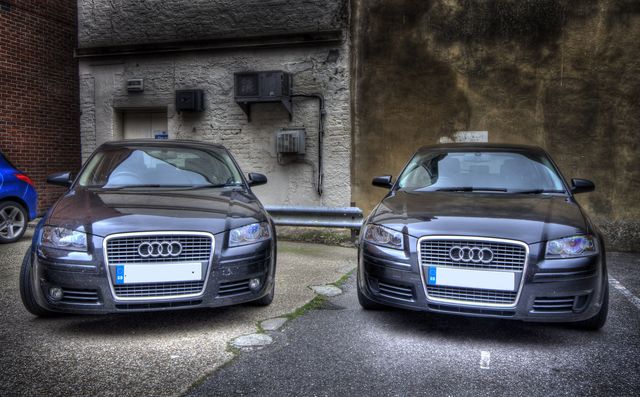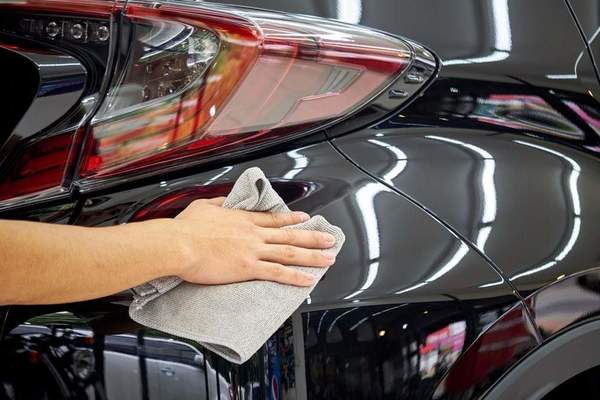FOR the first time in history, Volkswagen became the top-selling new car brand in the UK, registering 147,826 new vehicles in 2021. They outsold all other car brands taking 8.97 per cent of the markets total sales.
Significant contributions to that performance came from across the Volkswagen range but their top seller was the Polo, with the perennially popular Golf very close behind. The ID.3, which has been dubbed ‘the Electric People’s Car’ by experts across the industry, was another star performer, and one of the top-selling electric vehicles, although VW’s range is extensive from the award-winning up! city car through to the Touareg premium SUV.
Volkswagen’s broad range also has mild hybrid and plug-in hybrid models, the performance ‘R’ brand, practical estates, cabriolets, hatchbacks, fastbacks, seven-seaters, and of course, the iconic GTI hot hatch line-up. More than 30 accolades, trophies and titles were awarded to VW during 2021, plus the ID.4 was crowned ‘World Car of the Year’.
Whilst it would be remiss not to congratulate VW for this fabulous achievement, the much sought-after single model top spot was taken by Vauxhall when their Corsa won the best-selling new car of 2021.
The latest generation Vauxhall Corsa launched at the end of 2019 has for the first time topped the annual new car sales chart, making it a new brand at the top of the standings for the first time in 50 years, toppling the mighty Ford brand for the first time.
The bestselling Ford in 2021, the Puma Hybrid, was a lowly eighth with the usual chart topper the Fiesta nowhere in sight. Over two million Vauxhall Corsa models have been sold in the UK since the launch of the 2019 model, with over 13.5 million sold in Europe. In addition to Vauxhall sales, much of Ford’s market share was lost to excellent performances by Hyundai, Volvo, Kia, and Peugeot, all of whom increased their new car market share helping to topple the once mighty Ford.
How did your car maker fare in the petrol consumption stakes?

WHAT Car? magazine recently carried out laboratory tests to show what fuel economy can really be expected from a range of cars. So, what are the best and worst performing cars on sale?
Tests were conducted in a laboratory under tightly controlled conditions to mimic real-world driving in towns as well as rural and motorway driving. The results reflect what's achievable if you’re driving gently and sticking to speed limits but aren’t resorting to any unrealistically slow acceleration or special ‘hypermiling’ techniques. As a result, the mpg achieved is not only fully reflective of real-world performance, but much more realistic than the official government fuel economy figures that car manufacturers must quote.
Amongst the best performers, at number 10 was the Suzuki Baleno 1.0 litre with a figure of 55.2 mpg; the next best saw three cars in joint seventh: the Volkswagen up! 1.0, the Seat Leon 1.6 TDI and the Honda Jazz 1.5 Hybrid with mpgs of 55.9.
In sixth was the Vauxhall Astra 1.6 CDTi with 56.3 mpg, fourth was the Skoda Octavia 2.0 TDI, returning 57.9 mpg. In third was the Suzuki Ignis Hybrid returning 59.9 mpg. At number two was the Toyota Yaris 1.5 Hybrid, returning 59.93. And the number one was the Toyota Yaris Cross 1.5 Hybrid returning a whopping 60.1 mpg. Take the Yaris’s 1.5-litre petrol engine and electric motor, add chunky SUV styling and a raised ride height and, hey presto, you've created the Yaris Cross small SUV.
So, we’ve listed the most efficient cars, all of which average more than 55 mpg in real-world driving conditions, but which cars performed worst? At number 10 was the Volvo XC40 T4, delivering just 27.1 mpg; at number nine the Mercedes S500 with just 26.9; at number eight was the Land Rover Discovery 3.0 SDV6 with 26.3; at joint number six was the Mercedes AMG GLC 43 and the Porsche Macan Turbo with just 25.3; at number five was another Mercedes S500, this time the Cabriolet with a lowly 25.2mpg. At number four was the Audi SQ5 with 24.6mpg; at number three was the Lexus LC500 Cabriolet with 24.2; at number two was the Alfa Romeo Giulia Quadrifoglio with just 23.5mpg; and at the top, or should I say the bottom, of the table was the Audi S8 with a piddling 21.7mpg. Hopefully this will help guide you to the correct purchase, if, as it is to so many mpg, is important.
Doing amateur mechanics on your car can be fine – but only up to a point

WHEN you have a problem with your car, what do you do? Do you take it immediately to a trusted mechanic, or do you attempt to fix it yourself?
I have saved money over the years doing work on my cars, but I know my limits and it’s important that all amateur mechanics know theirs. There are some jobs that only a qualified mechanic should do, and these include any work on engines, brakes, and/or electrics. It’s true that experts can be expensive, but it’s a fact that an expert can be cheaper in the long run.
The average cost of a car service ranges from about £155 for a small car to £395 for a large car. An interim service, due roughly every 6,000 miles, can cost around £100, an oil and oil filter change around £70 and front brake pads from about £90. And something very important: always check with your mechanic that they use “manufacturer approved parts” as cheaper aftermarket parts could affect your warranty.
Many DIY mechanics refer to the internet for advice, but if you do, be careful. The internet is full of self-proclaimed experts who give advice when the truth is that most of them know absolutely nothing useful. In my early days of mechanical problem solving, I referred to forums that are specific to one make and or model. Forums on the face of it should be good places to get advice, they are after all build and run by experts... aren’t they?
The problem with forums is, ask one question and you get twenty different solutions. There was a recent experience of a forum which showed a contributor putting up a photo of an engine management light illuminated in the dashboard, asking for help in resolving the issue. The recommendations given included fitting a new lambda probe, a full exhaust, a full service and even fitting a new radiator.
The advice that should have been given was to get a reputable mechanic to use engine diagnostics software to diagnose the problem, and a computer diagnostic report can cost as little as £30. If you look after your own car, then look after it properly, get it serviced regularly and perform regular maintenance, i.e. bulbs, oil, coolant and water levels – wash it regularly, and it will look after you.
Happy motoring.









